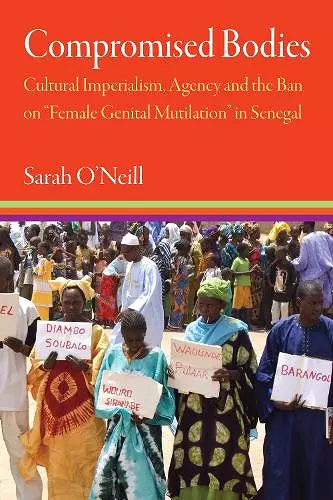Compromised Bodies
Cultural Imperialism, Agency, and the Ban on “Female Genital Mutilation” in Senegal
Format:Paperback
Publisher:University of Pennsylvania Press
Published:25th Mar '25
Should be back in stock very soon

Senegal’s 1999 ban on female genital cutting (FGC) sparked resistance in Fouta Toro, and opposition to the ban in this region has long seemed unified. This ethnography unravels political tensions surrounding the ban and presents a more complicated reality, where ordinary women and men continue to debate the practice and meaning of FGC.
This ethnography unravels the continuing political tensions surrounding Senegal’s 1999 national ban on “female genital mutilation”
The Senegalese parliament authorized a national ban on “Female Genital Mutilation” in 1999. Because only a third of the Senegalese population practiced female genital cutting (FGC) at the time, policy makers did not expect that the new law would cause controversy or provoke commotion. Yet, in Fouta Toro and among Fulani, who traditionally practiced FGC, the response to the new law was fury, and frustrations often turned violent. More than a decade after the ban, Fouta Toro was considered “the most difficult region” for anti-FGC activists, both from inside and outside the government. Tires were burned, international NGO delegates were threatened, and activists publicly speaking out against the practice were religiously condemned. Animosity toward the ban remains palpable in the region to this day. The ban, many (but not all) locals say, is nothing other than an overt act of Western cultural imperialism imposed on their community. For these individuals, resisting the ban is critical for maintaining the autonomy and integrity of a traditional way of life. And from the outside, opposition to the law and NGOs can seem unified.
However, anthropologist Sarah O’Neill discovers that on the ground, there are tensions between those who oppose the ban and those who support it—even as that support is nuanced and often complicated. This ethnography unravels the continuing political tensions surrounding both national and international interventions in Fouta Toro and in Senegal that place protection of the female body at the center of their concerns. By way of the many stories of ordinary women and men caught up in debates around the value of the practice and meaning of FGC, Compromised Bodies reveals the personal struggles and difficult decisions Fulani face, be they traditional cutters, religious leaders, mothers, husbands, divorced women, or anti-FGC activists.
"Compromised Bodies is a welcome addition to the field of medical anthropology, a nuanced study of the practice of excision and its relation to larger social issues." * Dinah Hannaford, University of Houston *
ISBN: 9781512827231
Dimensions: unknown
Weight: unknown
272 pages